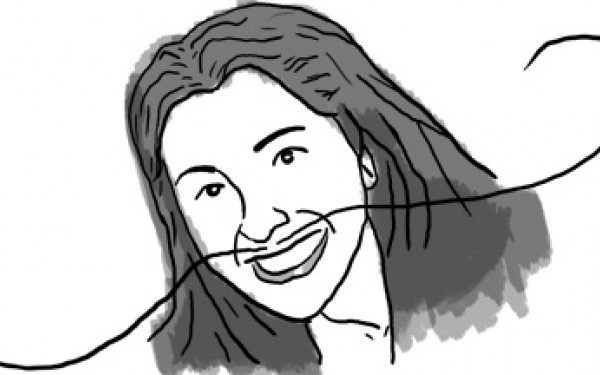On “No to Movember”
The article mentioned has been removed. You can find out why here.
I screwed up. I’m sorry.
I’ve been thinking about how to respond to all of your criticisms to my “No to Movember” article all week—to be honest, I’ve been thinking of little else. If you thought me too much of a callous asshole to care, trust me when I say that I care. I care as as a masthead member of this paper. I care as a writer. Mostly, though, I care as a human being.
I’ve found there are certain issues that you can’t take a stance on without seeming callous in some way, issues where the wellbeing of one group is tied, in some way or other, to the suffering of another group. If you feel one way, you’re being callous towards the first group. If you feel another way, you’re being callous to the other.
When every human life is important, how do you decide whom to prioritize? Whose lives are more important when all lives are important? How do you tell someone that his life or her life is less important?
The reality is that many people in the world face being told that—explicitly or implicitly—every day. We may not see these people, or that they are being told this, but that doesn’t mean it’s not happening. If anything’s callous, I think it’s callous that we ignore that fact. That was the thought that was driving my piece.
But that idea doesn’t mean I have—or anyone has—the right to tell sick, suffering and dying people that their suffering is less valid, or less important, than someone else’s. If they have lived privileged lives thus far, that is not any more their fault than anyone else’s lack of privilege.
It’s reductionist logic that equates less suffering with no suffering, that equates more privilege with extreme privilege, and while that may serve politicians or demagogues well, it doesn’t serve me, or The Link, well at all.
With matters like this—when human lives are involved, and people have lost friends and family members, I owed it to everyone, and myself and my fellow masthead members, to be tactful, thoughtful and considerate when making my points.
My “No to Movember” article last week was none of those things. I got caught up in the issue. I got the sense that some lives were being prioritized over others and it made me angry, as my stance made so many of you angry, too. We are passionate human beings. That’s one of the things that makes being alive so exhilarating.
It’s incumbent on me, as a writer for a newspaper, no matter how big or how small, to hold myself to a higher standard than simply being passionate, though. The Link possesses the means to distribute the words that its writers produce in ways that the average person does not.
Link articles get printed 10,000 times, and get posted on a website that people visit of their own accord, looking for things to read. Often they are Tweeted to hundreds of followers. In that position, it’s my responsibility to take into account the effect my words will have.
I didn’t do that last week. It made me look bad, and it made The Link look bad. It also angered, hurt and shocked a great number of people—far more people than have ever read anything I’ve written before.
I regret that for so many people, their introduction to me and to The Link was that article. I believe we’re both better than that—a lot better.
To those people whose moods or days I ruined, I’m sorry. In the last decade, two relatives of mine have been diagnosed with cancer, but I’ve never dealt with the day-to-day of it the way some of you have.
I’ve been lucky enough to be relatively unmarked by the power of cancer to destroy lives, to eat holes in happy families. That made me less careful when I was writing the article, both in my word-choice and in my arguments.
As I’ve learned this week, there are cogent, intelligent, mature ways to take issue with Movember that don’t devolve into angry, caustic posturing. There are ways to make a controversial point that don’t insult or belittle people fighting for their lives, and their loved ones.
I got caught up in my own head. I thought I was writing an intellectual piece, because I was espousing an opinion I hadn’t seen anyone make before. But I was just being emotional, and my anger led me to write things I shouldn’t have written.
I forgot about the reader. I wasn’t expecting this many people to ever read the article, but that’s no excuse for writing a bad article, or an extremely offensive article. Mine was both, unfortunately. I’m sorry.
I had a bad week this week. Every day I woke up to new messages telling me how wrong I was, and how insensitive and callous I’d been from people all over the world that my piece had moved to words.
I know that I deserved the backlash, but the thought that kept coming back to me was this—I don’t have anything to complain about.
I am the privileged North American male that my article was quick not to feel bad for. I knew that when I was writing it, but it hit home much harder when I was facing the heat.
So I did what befits a person facing valid criticism—I took my own advice and dealt with it.
I donated some money to a cause I’ve been supporting for two years now, I vowed never again to write something so cheap and shallow and spitefully antagonistic, I took the time to be thankful for the wonderful friends and family that I have, and the freedom and opportunity afforded me by the country I live in and the opportunities I’ve been given, and I wrote this piece.
—Alex Manley,
Copy Editor




